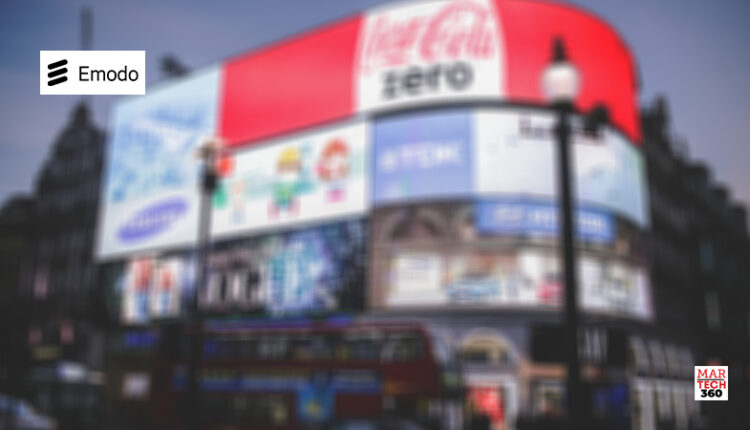Marketers Concerned About Loss Of IDs are 84% More Likely to Prioritize Immersive Creative Formats, Like AR
Emodo, an Ericsson company providing high-impact audience, inventory and creative advertising solutions, released brand new data findings from its Voice of the Marketer Research Series, analyzing ad creative in a privacy-centric world. This report provides a snapshot of marketers’ creative preferences and adoption trends – particularly among marketers concerned about, or experiencing, the impact of ID loss.
The study, conducted by Emodo’s research arm, Emodo Institute, is a quantitative survey of 400 pre-qualified marketers, focused on marketers’ preferences and adoption of creative formats, views on the appeal and effectiveness of specific creative formats, and correlations between creative strategies and concerns around the loss of tracking data.
Also Read: PandaDoc Announces Integration With ActiveCampaign
Key findings include:
Augmented Reality – The emergence of Augmented Reality (AR) in advertising is well-timed with the waning of device addressability as AR ads can be targeted with or without IDs. Additionally, 3.5 billion devices globally currently support AR experiences* and 74% of consumers agree that these ads are “more likely to capture [their] interest or attention than normal ads”.**
To that end, Emodo found marketers concerned about privacy are 84% more likely to prioritize immersive creative formats, such as AR.
“As the industry becomes more privacy-centric, we’re seeing a real creative renaissance,” said Jake Moskowitz, Head of the Emodo Institute & Emodo’s VP of Data Strategy. “AR ads, with the level of scale possible today and with the ability for consumers to self-personalize their own experience even without ID-based targeting, are becoming integral to privacy-forward campaigns, and at just the right time.”
Dynamic Creative Optimization – Dynamic Creative Optimization (DCO) algorithms determine dynamically which elements within an ad will be displayed for each user. Those algorithms continually learn and improve automatically, based on audience responses to specific variations. Marketers who have used DCO have found it to be quite effective. Emodo’s study reveals that 85% of users say DCO has driven “substantially better results” versus non-DCO ads.
But challenges remain in lieu of ID deprecation. Like other advertising techniques that rely on signals from tracking IDs, traditional DCO is becoming less effective as those signals fall away. DCO’s algorithmic optimization is based on the known characteristics of consumers which come directly or indirectly through tracking data that’s being deprecated. In fact, Emodo found that DCO users are more than 2x as likely to be experiencing effectiveness issues as a result of ID changes.


Comments are closed.